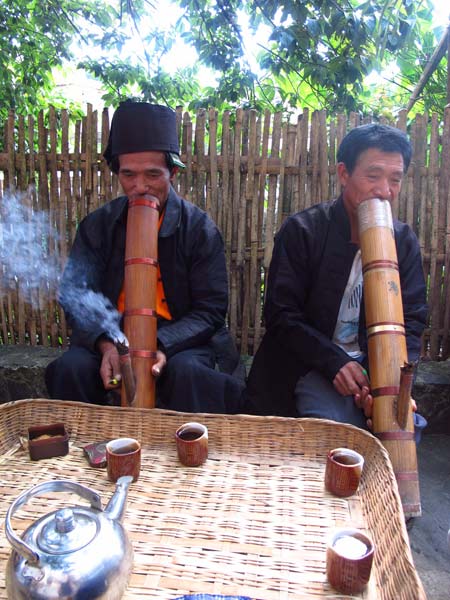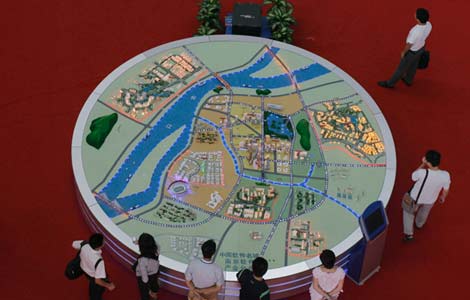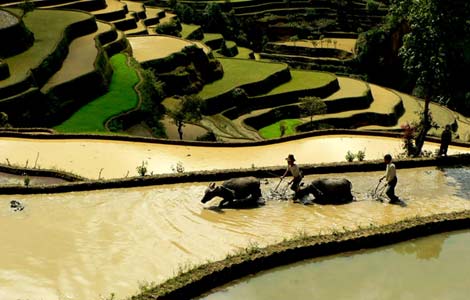Terraces cultivate global recognition
Updated: 2013-06-24 01:03
By Zhang Zixuan (China Daily)
|
||||||||
|
 |
|
Bamboo water pipes are Hani men's favorites. Zhang Zixuan / China Daily |
China began preparing the World Heritage application and domestic designations in 2000 to protect the world wonder.
In 2007, the local government and application office determined technical standards to be followed within all the villages to control development and construction.
Some abandoned terraces outside the nominated area and buffer zone have been recovered.
Improvements have been made to local living standards. For instance, livestock have been centralized, rather than dwelling in houses.
A monitoring center has been running for a year to study more than 10 ecological dimensions, such as forests and climate. The center has helped blunt the threat from alien species, such as the South American crayfish, which invaded the fields three years ago.
Red rice contains up to 18 amino acids and is being sold outside the Ailao Mountains. More than 90 trademarks have been registered to protect intellectual property rights.
The local government is working with Tsinghua University's School of Architecture to develop guidelines for construction that maintain the mushroom houses' extrinsic characteristics with improved interior functions.
In accordance with local people's wishes, the government will subsidize the houses' construction but allow residents to build them according to the guidelines. Three houses have been built in this way, and more are planned.
This May, the State Council designated the property as a State Priority Protected Site.
From October, only electric vehicles will be allowed to drive in the area.
"The Honghe Hani Rice Terraces' protection must receive all stakeholders' support," says State Administration of Cultural Heritage deputy director Tong Mingkang.
The government will offer farmers subsidies to encourage them to continue cultivating the paddies. Otherwise, it is feared nearly all locals might abandon them to work in the tourism industry.
More detailed and sustainable eco-tourism strategies are being developed to alleviate increased tourism's pressure.
Farmer Li Yousheng, from Yuanyang county's Dayutang village, says he now understands better than ever why protecting the terraces is important.
"The World Cultural Heritage designation shows the magnitude of our guardianship of the Hani lifeblood," the 53-year-old says.
- Hani rice terraces in UNESCO heritage
- Hani Rice Terraces wins World Heritage status
- Painting-like scenery of Hani terraced fields in SW China
- Honghe Hani terraced fields declare 2013 World Culture Heritage
- Hani terrace recognized as global heritage
- Hani Terraced Rice Field Cultural Tourism Festival of Honghe
- Hani ethnic group: the creator of the ‘tree clothes’
Most Viewed
Editor's Picks

|

|

|

|

|

|
Today's Top News
Spacecraft completes manual docking
US 'stole' China's statistics
Mandela's condition critical
Suspect in shooting spree detained
Mountaineers killed in Pakistan
Foreign firms eye new 'opening-up'
Project halted due to bird nests
Man gets death for killing 7 in 9 days
US Weekly

|

|















